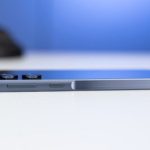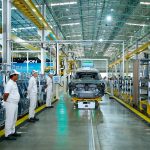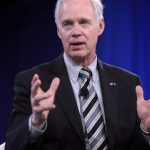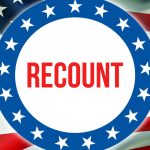“They’ve got to realise they’re … a very lucky generation,” Price said on Monday night after a segment about what young people think of the upcoming election. “They’ve grown up in a country that’s safe, that’s prosperous, they’ve got a pretty good chance of getting a job because they’ve had a free university education.”The rest of the panel called him out for detecting an attitude from the young people that just wasn’t there.“On a planet that’s being torched and they won’t own their own home?” replied Peter Helliar.“Who’s had a free university education,” asked Chrisie Swan.“Well, they’ve got a HECS debt,” retorted Price.“That’s not free,” said Swan. “Yours was free.”“I think what you took out of it, I didn’t get that vibe,” said Helliar. “I think they were being very open-minded and pretty fair … I think you’re being a little defensive.”“Everybody dumps on my generation, the Baby Boomers, saying ‘you had it easy’,” Price later said. “No I didn’t, I worked 50 years without having a day off.”“When did anyone say you had it easy? I didn’t see that bit,” responded Helliar, mimicking the thoughts of everyone under 35.“That’s what they’re suggesting,” said Price, “that’s it’s all hard for them and not hard for anyone else”.“You did have it a lot easier than this generation,” pointed out Hamish McDonald. “It was a lot cheaper to buy a house, you got free university education”.“I had to work hard every day of my life since I was 17,” said Price, well and truly missing the entire point.“So are they,” Swan pointed out, “and they feel like they don’t have the choices”.Gen Z votes could decide the electionIt’s this deep misunderstanding from older generations that might have spurred voters under 24 to have more of a voice than ever in this upcoming election. In fact, it seems like for the first time the outcome of the election rests on the shoulders of Australia’s youngest voters.According to the latest stats from the Australian Electoral Commission, more than 85 per cent of people under 24 have enrolled to vote — which equates to 1,645,091 voters. It’s the highest number ever seen for this age group.When you expand that age range to include all voters enrolled who are under 30, it adds up to more than three million.And what do the millions of voters in this age range care about? A lot of things, but for the election it can really be boiled down to three key areas:Climate changeLast month, Ipsos released it’s latest report after surveying changing attitudes in Australians. It found that eight in 10 Aussies “are concerned about climate change with a clear public expectation of Government action”.Despite this expectation of government — and a full 59 per cent responding that climate change policies would affect their voting choices — the Australian government is perceived to be performing poorly, especially when compared to what “not-for-profits, Australian small and medium businesses, and individuals are doing”. Liberals’ perceived lack of climate action is well documented (check out this climate policy explainer). Labor is currently claiming to invest money in renewable energy, as well as putting in a bid to host the next United Nations climate change summit, after Australia performed so poorly at the last one.Cost of livingNo matter who you are, it’s hard to avoid the news of increasing inflation rates, let alone avoid the pain it brings to your bank accounts.The quarterly inflation figures from the Australian Bureau of Statistics released showed that inflation has jumped to the highest it’s been in over 20 years: 5.1 per cent.Despite these huge numbers, Scott Morrison’s latest budget announcement did very little for younger Australians (which you can read more about here). In fact, The Australia Institute’s chief economist, Richard Denniss, told Junkee: “The prime minister clearly thinks that the federal election in May will be decided by voters who are older than average, richer than average, and more likely to live in regional Australia than average.”On the other hand, during his campaign, Anthony Albanese has acknowledged that “the cost of living is increasing, but pay isn’t keeping up”.“A Labor government will focus on lifting pay and profits and creating even more jobs by making our economy more productive,” he continued.Housing affordabilityMany young Australians have all but given up on being able to own a home, but they shouldn’t have to.Scott Morrison’s budget announcement included double the amount of places available for the Home Guarantee Scheme — which helps first home buyers by allowing them to purchase a home with a smaller deposit.It’s also true that for the first time in a long time housing prices in Sydney and Melbourne are starting to drop. However, with increasing inflation rates and the fact that housing prices went up at an unprecedented rate over the last few years — that really means nothing in terms of making housing more affordable.Not to mention that rental prices weren’t addressed at all. The 2022 Rental Affordability Snapshot from Anglicare “surveyed over 45,000 rental listings across Australia and found that affordability has crashed to record lows”. So low, in fact, that only 712 of the rental properties surveyed (aka two per cent) would be affordable to people earning minimum wage.
Powered by WPeMatico






